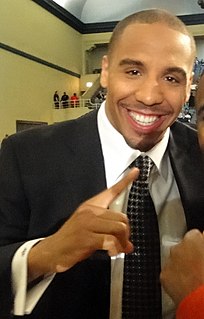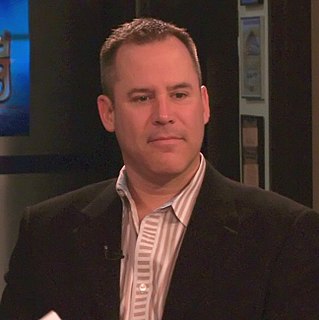A Quote by Ted Turner
I'm a very good thinker, but I sometimes grab the wrong word. I say something I didn't think through adequately. I mean, I don't type my speeches, then sit up there and read them off the teleprompter, you know. I wing it.
Related Quotes
If the majority of people said I did something wrong, then I must be wrong, and I will think 'I didn't even mean it like that, why are you treating me like this?' But if a lot of people say that I'm wrong and it's not good, then it must be not good. I will say, 'Okay' and then tell myself that this cannot happen again. I have to grasp it and change it for the better.
The object of this competition is not to be mean to the losers but to find a winner. The process makes you mean because you get frustrated. Kids turn up unrehearsed, wearing the wrong clothes, singing out of tune and you can either say, "Good job" and patronize them or tell them the truth, and sometimes the truth is perceived as mean.
I think a lot of the writing, you know, I write is just kind of like that where, you know. I write exactly how I'm feeling sometimes, and hardships that I'm going through. But I always end up, like the choruses are like, "God, You are good. God, you're faithful. You know, I know You understand, You're right here by my side." All these different things. And I just say very personal experiences that I've been through. I mean, it's not always detrimental thing.
I don't think I've ever googled myself. But I do read some things... I mean, if I know that I was with an interviewer and I kind of figure that he or she got something bad or something good from the interview, then I'll read the piece when it comes out. But other than that, I'd have to have a reason to read it - and, usually, I don't have a reason.
Usually, the way I write is to sit down at a typewriter after that year or so of what passes for thinking, and I write a first draft quite rapidly. Read it over. Make a few pencil corrections, where I think I've got the rhythms wrong in the speeches, for example, and then retype the whole thing. And in the retyping I discover that maybe one or two more speeches will come in. One or two more things will happen, but not much.
I like to look up the formal definitions of words that I'm already familiar with and sometimes you find out a word means something you didn't already think of, you know? I looked up the definition of "upset" and it was something like, "To be filled with uneasiness and anxiety," and I feel like that all the time, so I was like, "That's appropriate." But also it's a name that when you hear it, you wouldn't assume that it's any certain type of band. It kind of has room to grow into and make it redefine the word.
I want to say something very clearly. I understand that I'm a self-confident person who might come off with the wrong attitude sometimes, but I don't mean to. I just believe in certain things, and I know exactly what I want. I've always sacrificed things in order to become the best musician I could be.
You always hold the key of repentance to unlock the prison door. If they throw the word diversity at you, grab hold of it and say, "I am already diverse, and I intend to stay diverse." If the word is tolerance, grab that one, too, saying, "I expect you to be tolerant of my lifestyle-obedience, integrity, abstinence, repentance." If the word is choice, tell them you choose good, old-fashioned morality.
Young screenwriters are always very frustrated when they talk to me. They say, 'How do we get to be a screenwriter?' I say, 'You know what you do? I'll tell you the secret, it's easy: Read 'Hamlet.' You know? Then read it again, and read it again, and read it until you understand it. Read 'King Lear,' and then read 'Othello.'
I'm a visual thinker, really bad at algebra. There's others that are a pattern thinker. These are the music and math minds. They think in patterns instead of pictures. Then there's another type that's not a visual thinker at all, and they're the ones that memorize all of the sports statistics, all of the weather statistics.
Then they began to say: 'Yes, but how can we know what is God's Word, and what is right or wrong? We must learn this from the Pope and the councils.' Very well then, let them conclude and say what they please, yet I will reply, you cannot put your confidence in that nor thus satisfy your conscience, for you must determine this matter yourself, for your very life depends upon it. Therefore God must speak to your heart: This is God's Word; otherwise you are undecided.
You read something and you know it's not there yet. There's a little section here that... this part's good but that is a little not, it doesn't quite work. That doesn't quite work. That's easy. To say, "OK, now, this is what I think will fix it." That's harder. And most people can tell you what's wrong with something. Very few people can say what they would do to fix it.
You know, there are good reasons to learn how to read. Poetry isn't one of them. I mean, so what if two roads go two ways in a wood? So what? Who cares if it made all that big a difference? What difference? And why should I have to guess what the difference is? Isn't that what he's supposed to say? Why can't poets just say what they want to say and then shut up?



































